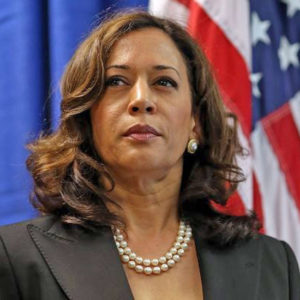It may not be the 1970s. but Kamala Harris is all-in on price control policies practiced by Presidents Richard Nixon and Jimmy Carter.
Whether it’s during campaign rallies, pre-recorded interviews, or slick-looking commercials, Harris’ pitch to voters is she can force private companies like grocery stores to lower prices.
She’s portrayed a price gouging ban as a way to stop so-called bad actors from taking advantage of crises to pad their bottom lines. “More competition means lower prices for you and your families,” Harris said last month.
Economists warn the proposal would likely do the opposite.
“It could accidentally increase prices, and they will most certainly create serious shortages,” Dr. Veronique de Rugy from the Mercatus Center at George Mason University told InsideSources.
A recent YouGov poll found 60 percent of Americans support targeting private companies in the fight against inflation.
But Harris’ calls for price controls appear rooted in politics. She’s relied more on promises to go after “bad actors” instead of solutions, critics say.
That could be by design, according to Dr. Erasmus Kersting, the economics chair at Villanova University.
He said any federal price control policy would need a formula to determine when price increases were ‘excessive’ or price gouging. It would also have to figure out when the ban would apply and when it wouldn’t.
“I just see cans of worms here. It’s very difficult for me to imagine it doing that well. I’m not even sure it can be done well,” Kersting told InsideSources.Harris Is All-In On Price Controls. Economists Are Not.
There is already price control legislation on Capitol Hill. The Price Gouging Prevention Act of 2024 was introduced in February by congressional Democrats
The proposed legislation gives $1 billion in taxpayer dollars to the Federal Trade Commission to seek out why businesses raised prices. The bill requires publicly-traded companies to explain to the federal government why they increased prices, along with pricing strategies when the American economy sees higher inflation or unemployment.
Casey recently said federal action fighting so-called price gouging would not only expose it but “hold [big corporations] accountable.”
Yet Democrats have a major problem with their price gouging complaints. There’s no evidence that’s happening.
A Federal Reserve Bank of New York analysis conducted weeks before Harris argued for price gouging and control legislation connected higher grocery prices to higher operating costs. The New York Fed noted commodities shot up immediately after the COVID pandemic and prices adjusted accordingly.
Some of those costs included higher wages. The NY Fed said grocery workers saw wages increase around 15 percent greater than those of food manufacturers in 2021 and 2022. “Grocery worker wages would seem then to be a key factor in why the food index has gone up more than the core price index,” analysts noted.
It was during this same time that the federal government rapidly increased spending. The Biden-Harris administration and Congress passed laws including the American Rescue Plan, the CHIPs Act, the Inflation Reduction Act, and the infrastructure spending package that flooded the country with money without offsetting cuts or tax hikes.
As a result, America’s national debt hit $35 trillion in July. The nonpartisan Congressional Budget Office projects the deficit would be $2 trillion by year’s end.
Republican vice-presidential nominee U.S. Sen. JD Vance (R-Ohio) blamed Harris for inflation. “This is all because of the policies of Kamala Harris. This is the person who is promising that she’s going to fix the very problems that she is creating for 1300 days,” he said last month.
Harris’ call for federal price control legislation isn’t expected to go anywhere. Democrats told Politico there was no way the bill would pass even if their party ran the White House and Congress.
Kersting agreed. “I think [it’s] just [being] used as a vehicle to communicate sentiments that [Harris] has, people over corporations, the Everyday Guy versus rich people rather than being a sound, well thought out economic policy,” he said.


